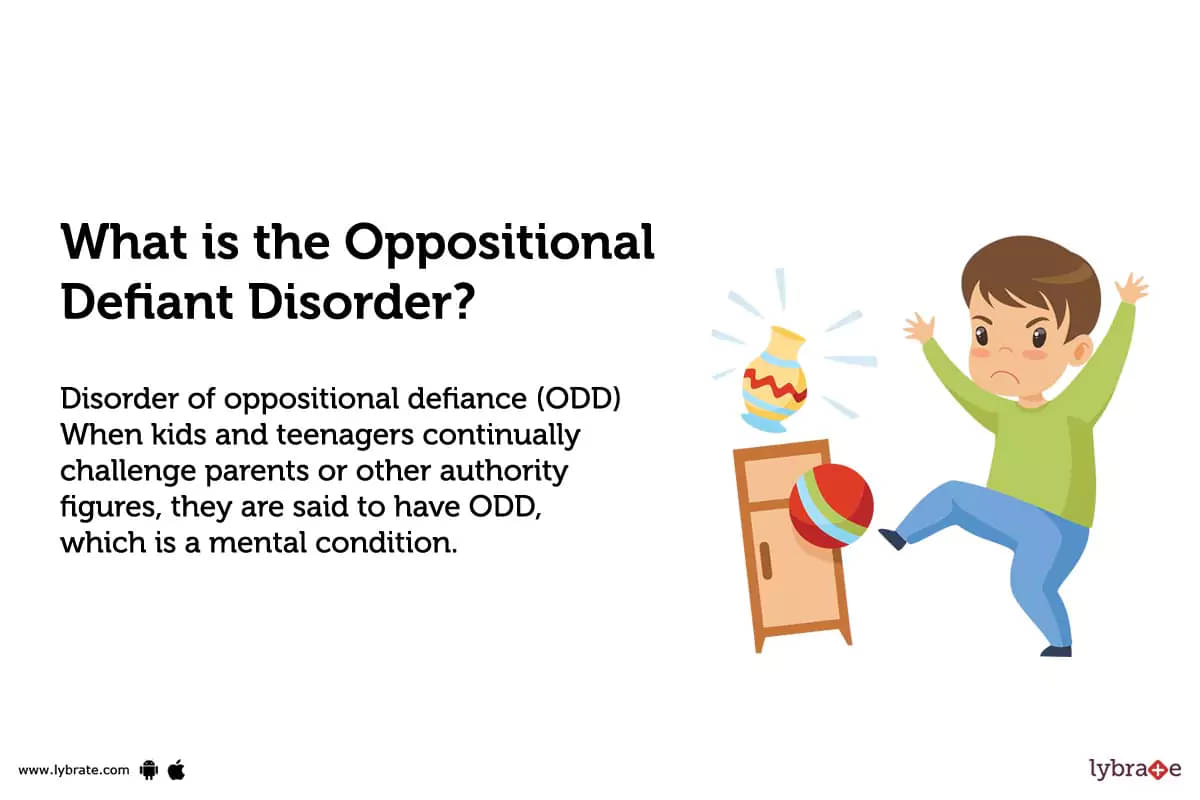Oppositional Defiant Disorder: Causes, Symptoms, Treatment, and Cost
Last Updated: May 10, 2023
What is the Oppositional Defiant Disorder?
- Disorder of oppositional defiance (ODD) When kids and teenagers continually challenge parents or other authority figures, they are said to have ODD, which is a mental condition. Symptoms include argumentative and defiant behavior, angry moods, and vindictiveness.
- Treatment for ODD primarily involves behavioral therapy. In order to do this, parents must learn how to handle their children's conflicting behavior toward them without becoming upset or undermining the parent-child bond.
- In addition to parent education and parent-child interaction treatment, the therapists place a strong emphasis on family and individual therapy, cognitive problem-solving training, and social skills development.
- While there is no clear cause for ODD, genetic and environmental factors may play a role. Harsh discipline, lack of supervision, abuse or excessive neglect, and family issues can contribute to the development of the disorder.
- In order to appropriately address ODD, it is crucial for parents to observe and comprehend their children's behavior. Mental health professionals and child development experts should be consulted for treatment.
What are the symptoms of Oppositional Defiant Disorder?
The symptoms of ODD can vary, but common signs include;
- Argumentative and defiant behavior: Children with ODD may argue frequently with authority figures and refuse to follow rules or instructions.
- Angry and irritable moods: These children may exhibit mood swings and become easily agitated or irritated.
- Vindictiveness: They may display a tendency to seek revenge against those they feel have wronged them.
- Children with ODD may also engage in temper tantrums, blame others for their mistakes, and refuse to comply with rules or requests. It is important for parents to observe their child's behavior and seek help from mental health professionals to diagnose and treat ODD effectively.
How is the Oppositional Defiant Disorder treatment done?
Argumentative and defiant conduct, irritable moods, and vindictiveness are common in children with ODD. It is essential that the disorder is treated in its early stages to avoid its progression into a more severe disorder like conduct disorder.
The treatment of ODD involves a combination of approaches, including;
- Parent training: A mental health therapist helps parents learn positive and consistent parenting skills and may involve the child in the training sessions.
- Parent-Child Interaction Therapy: A therapist guides the parent through the process of interacting with their child, improving the child-parent relationship.
- Individual and family therapy: To encourage the youngster to express their emotions and control their anger in a healthy way, a therapist speaks with them directly.
- Cognitive problem-solving training and social skills training: Children are taught how to understand problems, get involved in problem-solving, and develop social skills.
Unless the child is also being treated for another mental disease like depression, ADHD, or anxiety, medication is not usually necessary for ODD treatment. The goal of treatment is to help the child learn to control their behavior and develop positive relationships with authority figures and peers.
Who is eligible for the treatment?
It is critical to recognize that the child's issues, including their impolite behavior, anger, lack of social skills, tension, and worry, are caused by ODD. The youngster will be qualified for the treatment once it has been determined with the assistance of an expert mental health practitioner.
Who is not eligible for the treatment?
It is up to the parents to decide whether an ODD child needs to receive treatment from a licensed mental health therapist. It is crucial to know if the disease is persistent or if it coexists with a variety of other detrimental symptoms. A kid will not be eligible for treatment if they do not exhibit the symptoms for an extended period of time and their actions are adequately controlled and managed by their parents.
Are there any side effects?
There aren't any side effects because the treatment often doesn't involve medication unless the youngster also has anxiety or depression. The primary forms of treatment are talk therapy, behavioral training, and instruction in the development of social and communication skills.
What are the post-treatment guidelines?
There are no such particular post-treatment instructions because the treatment often consists only of behavioral training and does not entail any medication or surgery. The training is a continuous process, and after around 6 to 12 months, significant behavioral changes become visible.
How long does it take to recover?
The therapy does not use medication but rather focuses on behavioral training. Hence, it takes a long time to treat a child's ODD with talk therapy, instruction in effective communication, improvement of social skills, and understanding of difficulties and acceptable behavior in all situations. Positive changes in the youngster could take anywhere between 6 and 12 months to manifest.
What is the price of the treatment in India?
In India, the cost of treating ODD ranges from INR 200 to 500.
Are the results of the treatment permanent?
After the problems' underlying causes have been found, the results really do last forever. The same problems typically do not recur once parent and child receive training on how to handle the events and actions.
What are the alternatives to the treatment?
When a child is growing up, parents should start forming some healthy and positive habits early on. Parents must watch their children's activities and behaviors and discipline them appropriately from the moment they begin to perceive the world and behave as they like.
The following strategies can be used to manage a child's defiant behavior;
- Recognizing and appreciating your child's positive deeds
- Establishing boundaries for both you and your kids and refraining from responding in any situation
- Establishing a routine
- Joint efforts
- Spending quality time together
- Assigning each family member a specific set of housekeeping duties
- Preparing the youngster to accept obstacles in a good and sporty manner.
Conclusion
Oppositional Defiant Disorder (ODD) is a challenging and complex condition that can significantly impact the lives of children, adolescents, and their families. The symptoms of ODD can cause a range of social, academic, and emotional problems, and can often co-occur with other mental health conditions.
It is crucial to recognize the signs of ODD and seek professional help early on to receive appropriate treatment. The good news is that effective treatments, such as psychotherapy, behavioral therapy, and family therapy, can help children and adolescents with ODD improve their behavior, relationships, and overall quality of life. With proper care and support, children with ODD can learn to manage their emotions, communicate their needs effectively, and build positive relationships with others.
References
- Oppositional defiant disorder (ODD)- Mayo Clinic [Internet]. mayoclinic.org 2019 [Cited 20 August 2019]. Available from:
- Oppositional defiant disorder- Medline Plus, Medical Encyclopedia, NIH, U.S. National Library of Medicine [Internet]. medlineplus.gov 2019 [Cited 20 August 2019]. Available from:
- Oppositional Defiant Disorder- Merck Manual Consumer Version [Internet]. merckmanuals.com 2019 [Cited 20 August 2019]. Available from:
Table of content
15+ Years of Surgical Experience
All Insurances Accepted
EMI Facility Available at 0% Rate
Find Psychiatrist near me
Ask a free question
Get FREE multiple opinions from Doctors



